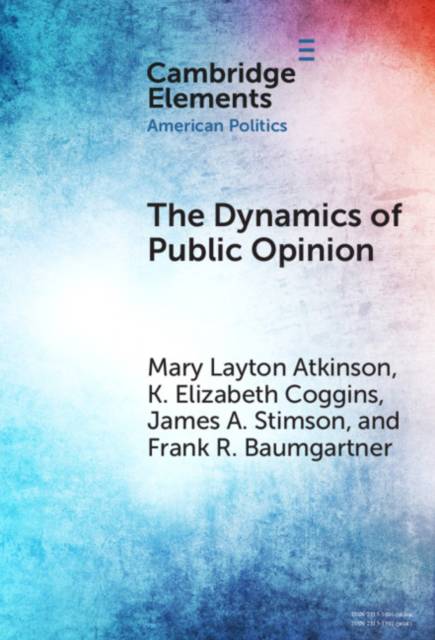
- Afhalen na 1 uur in een winkel met voorraad
- Gratis thuislevering in België vanaf € 30
- Ruim aanbod met 7 miljoen producten
- Afhalen na 1 uur in een winkel met voorraad
- Gratis thuislevering in België vanaf € 30
- Ruim aanbod met 7 miljoen producten
Zoeken
€ 93,95
+ 187 punten
Uitvoering
Omschrijving
A central question in political representation is whether government responds to the people. To understand that, we need to know what the government is doing, and what the people think of it. We seek to understand a key question necessary to answer those bigger questions: How does American public opinion move over time? We posit three patterns of change over time in public opinion, depending on the type of issue. Issues on which the two parties regularly disagree provide clear partisan cues to the public. For these party-cue issues we present a slight variation on the thermostatic theory from (Soroka and Wlezien (2010); Wlezien (1995)); our "implied thermostatic model." A smaller number of issues divide the public along lines unrelated to partisanship, and so partisan control of government provides no relevant clue. Finally, we note a small but important class of issues which capture response to cultural shifts.
Specificaties
Betrokkenen
- Auteur(s):
- Uitgeverij:
Inhoud
- Aantal bladzijden:
- 75
- Taal:
- Engels
- Reeks:
Eigenschappen
- Productcode (EAN):
- 9781009100595
- Verschijningsdatum:
- 11/11/2021
- Uitvoering:
- Hardcover
- Formaat:
- Genaaid
- Afmetingen:
- 152 mm x 229 mm
- Gewicht:
- 285 g

Alleen bij Standaard Boekhandel
+ 187 punten op je klantenkaart van Standaard Boekhandel
Beoordelingen
We publiceren alleen reviews die voldoen aan de voorwaarden voor reviews. Bekijk onze voorwaarden voor reviews.











